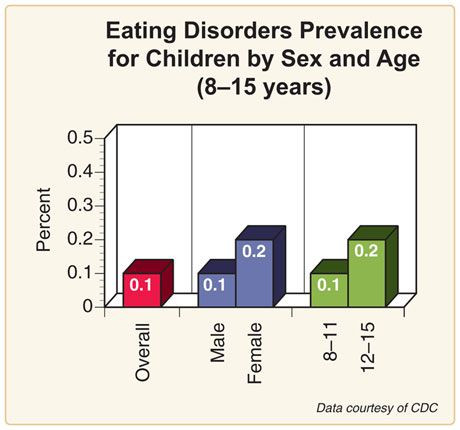Eating Disorders May Be More Common Than You Think

One in 20 suffers from borderline anorexia, a subclinical condition five times as prevalent as anorexia and often undetectable, researchers said this week.
Just as "borderline personality disorder" straddles the divide between neurosis and psychosis, "almost anorexia" occupies an often imperceptible grey zone between full-blown disease and merely fussy eating habits.
Jennifer Thomas, a Harvard University assistant professor, said that although the conditio exhibits only some of the symptoms of anorexia it is just as dangerous, the Daily Mail reported. You might either suffer from the condition yourself or know someone who does, Thomas writes in her new book, "Almost Anorexic: Is My (or My Loved One's) Relationship with Food a Problem?"
Symptoms include fluctuating weight, restrictive dieting, purging, binge eating and a negative body image.
Thomas said many people-women in particular -- might suffer from this symptomology in today's looks-obsessed culture. However, to meet clinical standards for diagnosis of anorexia or bulimia, a patient must be severely underweight with a body mass index of 17.5 or less, with an intense fear of gaining unsightly weight, in addition to a body image disturbance.
Such patients strive to avoid weight gain by vomiting, exercising excessively or obsessively counting calories. "It's not dieting to fit [into] your prom dress," she said. "It's really more of an unhealthy obsession with food."
One in 200 people meet the clinical standards for diagnosis for full-blown anorexia. But research suggests a much larger proportion -- five times higher-of people suffering from "borderline anorexia," a condition that may cause low blood pressure, low heart rate, fatigue, depression and even death.
"Some studies have actually shown that having a subclinical eating disorder actually confers just as high a mortality rate as having a full-syndrome eating disorder," Thomas said.
Though the condition might be hard to diagnose, Thomas said people should question restrictive dieting and consider whether the behavior associates with any of the symptoms of an eating disorder. In a series of YouTube videos, she said patients should receive cognitive behavioral therapy as treatment.
Eighty-five to 90 percent of those suffering from eating disorders are women.
Published by Medicaldaily.com



























